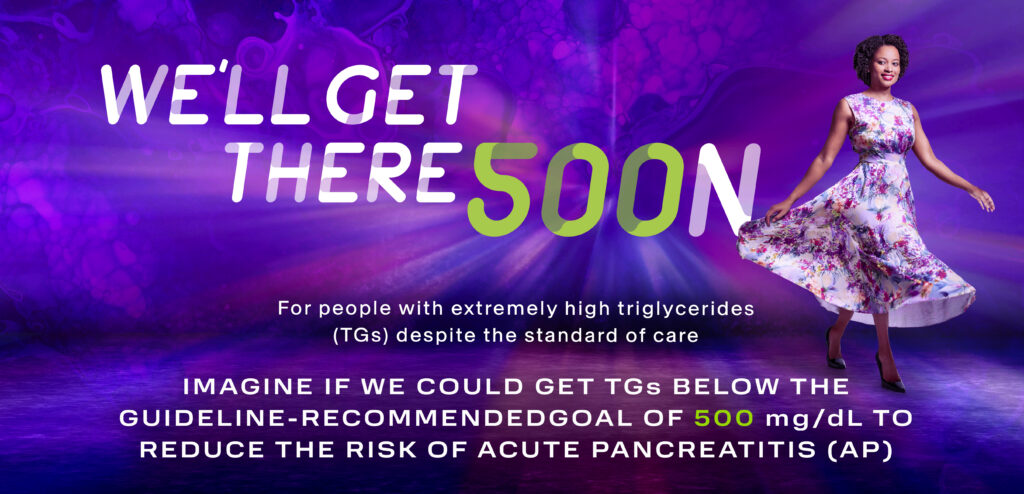On Familial Chylomicronemia Syndrome (FCS) Awareness Day, which falls on November 1 every year, Arrowhead Pharmaceuticals launched a new campaign called ‘We’ll Get There Soon’ to shed light on the rare disease.
The initiative aims to raise awareness about the disease and the challenges faced by patients living with the rare genetic disorder.
The campaign includes a website, https://lowertriglycerides.com/, along with Instagram and Facebook pages, providing a platform for those affected by FCS to share their experiences.
A primary goal of the campaign is to educate the community on expert guidelines, which recommend keeping triglyceride levels below 500 mg/dL to lower the risk of acute pancreatitis.
FCS is a rare, genetic lipid disorder, typically caused by specific single-gene mutations, that affects the body’s ability to break down fats, or triglycerides, in the blood.
FCS causes extremely elevated triglyceride levels, often exceeding 880 mg/dL. These high levels lead to a range of severe symptoms, including acute, sometimes fatal, pancreatitis, chronic abdominal pain, diabetes, liver fat accumulation, fatty deposits under the skin and cognitive challenges.
Around one to two individuals per million worldwide have FCS and the effects of the disease can be devastating. Currently, there are limited treatment options that primarily revolve around strict, lifelong dietary restrictions, but none that effectively address the underlying cause of the disease. Even minor deviations in diet can trigger severe symptoms, making daily life a continuous challenge for individuals with FCS and their caregivers.
Related: Bill Nye Becomes Advocate for New Ataxia Awareness Campaign
In addition to education about optimal triglyceride levels, the ‘We’ll Get There Soon’ campaign will also include personal stories and testimonies from FCS patients and their families. By sharing their daily experiences, struggles and successes, Arrowhead aims to break the isolation often felt by individuals with rare diseases.
Through social media, online events and informational resources, Arrowhead is creating a space for patients and their loved ones to connect and feel understood. By fostering these connections, the company hopes to empower FCS patients, giving them a voice in the broader conversation about rare disease treatment and awareness.
Arrowhead held a launch event at its Pasadena headquarters that featured special guests Julie Klueckman and her husband Gary, who shared their journey with FCS from both a patient and caregiver perspective.
Julie’s story underscores the profound challenges of living with FCS, including numerous misdiagnoses, frequent, prolonged hospitalizations, the lack of effective treatments and the need to follow a very restrictive diet — limited to about 20 grams of fat per day, roughly less than three tablespoons of peanut butter.
“My journey to diagnosis was a difficult one that ended after a decade-long diagnostic process and countless hours of research, learning about FCS and finally presenting the idea to my doctor,” Julie explained.
“Despite my eventful history with this condition, including countless hospitalizations, multiple surgeries, a radical hysterectomy, relocating and moving my family to be closer to my trusted doctors, I remain optimistic about the future for FCS patients,” she added.
Julie is also working with Arrowhead to contribute patient insights that will help support and inform efforts for FCS because she believes, “Hope is on the horizon.”
Alexendra Roeser, director of Patient Advocacy at Arrowhead, said “We are humbled to play a small role in amplifying the voices of those affected by FCS and bringing them hope. Julie’s presence in our offices reminds us of why we do what we do every day and reaffirms one of Arrowhead’s core values: patients — making people’s lives better.”
Arrowhead Pharmaceuticals focuses on developing RNAi therapeutics targeting the genetic cause of challenging diseases like FCS.
The company’s pipeline includes candidates targeting FCS, dyslipidemia, nonalcoholic steatohepatitis (NASH), now known as metabolic dysfunction-associated steatohepatitis (MASH), and cardiovascular disease in Phase II and Phase III trials.
If you want your company to be featured on Xtalks.com, please email [email protected].












Join or login to leave a comment
JOIN LOGIN